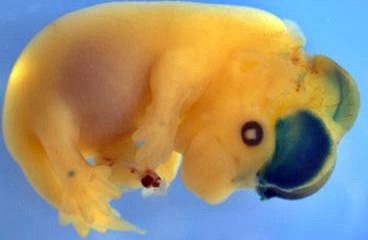Researchers from Duke University have found the gene that dictates the size of our brains.
The DNA sequence they discovered is called "Human-Accelerated Regulatory Enhanced" or HARE5. They said HARE5 regulates how many neural stem cells can be produced. Neural stem cells are the precursors of brain cells.
"We discovered that the human DNA sequence, which only had 16 changes in it compared to the chimp sequence, was being expressed differently in mice," said study author Debra Silver explains,
She said human DNA was able to accelerate the way the stem cells divide. As a result, the mice were able to produce more neurons". She noted HARE5 seems to promote the ability to create more neurons and increase brain size, which allows human brain development to take advantage of that, according to Duke University.
Researchers said they've zeroed-in on the gene responsible for making the human brains bigger compared to other non-humans primates like chimpanzees.
Study's co-author Gregory Wray said what they found is piece of the genetic basis for why we have a bigger brain.
"It really shows in sharp relief just how complicated those changes must have been. This is probably only one piece - a little piece."
Human DNA and chimpanzee DNA are 95 percent identical. The human brain is quite different from that of the primates, however.
As to size, human brains are much bigger and complex than those of chimps. Human brainsalso have far more neurons and denser connectivity that leads to superior intellectual and emotional cognitions.
In their experiment, researchers extracted chimpanzee and human DNA from the HARE5 regions and inserted them into mice embryos. They found that putting the human version of the DNA increased the rapid division of stem cells leading to the development of more neurons and a larger brain.
Silver said the experiment really highlights that just a small difference in the regulatory regions of human DNA "even ones that don't really make a gene, per se, but help to control genes, can have a big impact on how the brain is built, and ultimately how it functions."
Duke researchers concluded the human version of a DNA sequence called HARE5 turns on a gene important for brain development and causes a mouse embryo to grow a 12 percent larger brain by the end of pregnancy than an embryo injected with the chimpanzee version of HARE5.
The findings could lend insight into what makes the human brain special but also why people get some diseases such as autism and Alzheimer's disease whereas chimpanzees don't, said Diabetes Insider
They were published online in Current Biology.



























